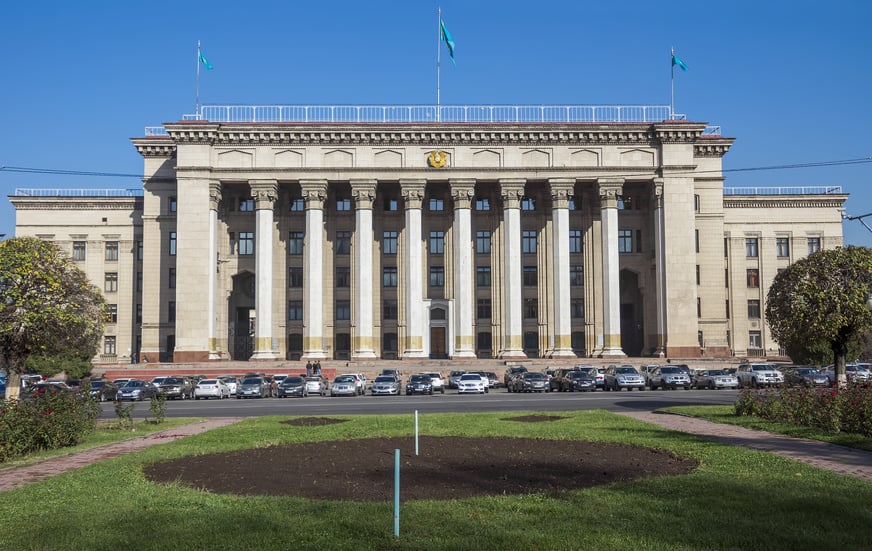On 29 October 2015, the Republic of Kazakhstan adopted its first Commercial Code (the “Code“).1 The Code was adopted to facilitate the implementation of the “Plan of the Nation – 100 Specific Steps to Implement the Five Institutional Reforms” and to comprehensively regulate public relations in the business environment. The Code will take effect on 1 January 2016.
The core objective of the Code is to systematize laws and regulations applicable to government regulation of business. The Code incorporates rules that govern various business sectors and includes provisions on private business, investment, and government monitoring. A separate Baker & McKenzie legal alert addresses the legal innovations in regulating these matters.
This Legal Alert describes the most important developments in competition regulation included in the Code, which will take effect on 1 January 2016. Once the new Code becomes effective, Law No. 112-IV of the Republic of Kazakhstan On Competition dated 25 December 2008 (the “Competition Law”) will be rendered ineffective.
The major developments are the following:
- increased responsibility for anti-competitive agreements and concerted practices. Specifically, the Code has repealed a number of exemptions from the general restriction of cartel arrangements;
- additional criteria for declaring market dominance for players with a market share of 35% to 50%. Those market players whose shares exceed 50% will automatically (without any other tests) be viewed as dominant entities;
- the National Register of Market Dominants shall only be kept for entities operating in regulated markets2; and
- investigated companies’ right to address and settle the deficiencies identified during the investigation through the mechanism of “conciliation commission discussions”.
The above developments are discussed in more detail below.
Anti-competitive agreements and concerted practices
The provisions in the new Code on anti-competitive agreements have been brought in line with international practice by defining cartel agreements as a separate category of antimonopoly law violations.
In particular, only horizontal agreements posing the greatest threat to competition (namely those intended to establish prices by competitors as defined in their agreements, providing for collusive biddings, market division, cutback in or cessation of production, or refusing to contract with certain buyers or sellers) qualify as cartels under the Code.
The current Competition Law permits anti-competitive agreements, if they can potentially result in positive social and economic effects. However, under the Code these exceptions shall not apply to cartel agreements. Additionally, the ban on cartel agreements, which influence or may influence the outcome of bids, auctions and tenders, may also apply to agreements made within one and the same group of persons3. This indicates that the competition authority will take a tougher approach and will seek invalidation of cartel agreements and require agreements previously concluded within one and the same group of persons to be revised.
The Code permits market players to apply for and obtain from the competition authority an opinion on whether a proposed agreement is in line with the competition laws before the agreement is executed. This will definitely allow market entities to better assess the risks associated with possible violations of the competition laws.
The Code has also altered the criteria for determining if acts of market entities qualify as anti-competitive concerted practices. On the one hand, the Code has eliminated the 3-month period stipulated by the Competition Law as a prerequisite for a “concert”4, which means that a tougher liability is established for acting in concert. On the other hand, the aggregate market share threshold for recognizing concerted practice of market players as anticompetitive has been increased (from 15% to 35%), which liberalizes the regulation of market entities that hold smaller market shares.
Assessment of a dominant market position and the abolition of the Register of Dominants/Monopolists
Under the Competition Law, a market player holding more 35% market share should automatically be viewed as dominant. However, the Code establishes factors, in addition to the size of a market share, that must be taken into account to declare an entity holding a 35%-50% market share a dominant. Such factors shall include market powers that enable a market entity to fix, at its own discretion, prices of goods in the relevant market and generally to determine, for an extended period of time, conditions for marketing its goods and to set barriers preventing its competitors from accessing the market.
We think that this approach to determining whether dominance takes place, which requires certain other factors to be taken into account in addition to the assessment of market share, is fair and capable of preventing significant restrictions on market players that hold major market shares, but actually have no market power. However, in practice, this provision may be hard to apply due to the limited ability of the competition authority and courts to conduct proper market research.
The Code requires the State Register of Market Dominants/Monopolists to only be kept for entities operating in regulated markets. The legislation still requires that such entities submit reports on their operations and obtain approval of their pricing policies. On the one hand, the abolition of the single register should significantly reduce the list of administrative duties imposed on companies that do not operate in regulated markets (for instance, reporting and approval requirements). On the other hand, a market entity not included in the State Register may still be held liable for abuse of dominance if such dominance is found by the competition authority in the course of an investigation. This, in turn, forces every market entity to track its market position and to account for these risks in its operations.
Also, according to the Code, if there are grounds to suspect any of the most common violations of the legislation on the part of a dominant market entity (including an unreasonable refusal to contract, post-sale restraint and unreasonable cutback in production), the competition authority may now issue written warnings for violations of the competition laws to market entities.
The extensive use by the competition authority of this preventive mechanism will significantly reduce the number of cases when market entities are held liable for violations of the competition laws and encourage their lawful behavior.
Formation of a conciliation commission
In accordance with international practice, the Code provides for the formation of a conciliation commission, which shall be in charge of reviewing the outcome of investigations conducted by the competition authority and shall be composed of officers of the competition authority, independent experts and representatives of the market entity concerned so as to be able to carry out a comprehensive and fair examination of all the circumstances of the case.
The competition authority shall approve the procedural rules of the conciliation commission. Therefore, it is currently difficult to evaluate its practical importance. However, when discussing this new body, the working group of the Committee for Regulation of Natural Monopolies and Protection of Competition of the Ministry for National Economy of the Republic of Kazakhstan intended that market entities would be provided an opportunity, before the outcome of an investigation is approved, to discuss their issues openly and transparently with the competition authority and to produce their counter arguments at a joint meeting of the commission with the attendance of representatives of the competition authority and the market entity concerned, as well as with independent experts.
Therefore, we regard the recent amendments to the competition laws as a positive step, which may significantly increase the openness and transparency of investigations conducted by competition authorities.
1 Commercial Code of the Republic of Kazakhstan No. 375 dated 29 October 2015.
2 Under the prevailing legislation, regulated markets include railway transport, electricity and heating, oil products, oil transportation, civil aviation, port operations, telecommunications, postal services and gas markets (Law of the Republic of Kazakhstan No. 272-I On Natural Monopolies and Regulated Markets dated 9 July 1998).
3 We note that in this case there is a certain contradiction with some other provisions of the Code that do not recognize agreements entered into within a group of persons as anti-competitive. This contradiction needs to be clarified in the course of enforcing the Code.
4 Under the Competition Law actions can be viewed as “concert” only if they have been made within 3-month period starting from the date of the first action.



